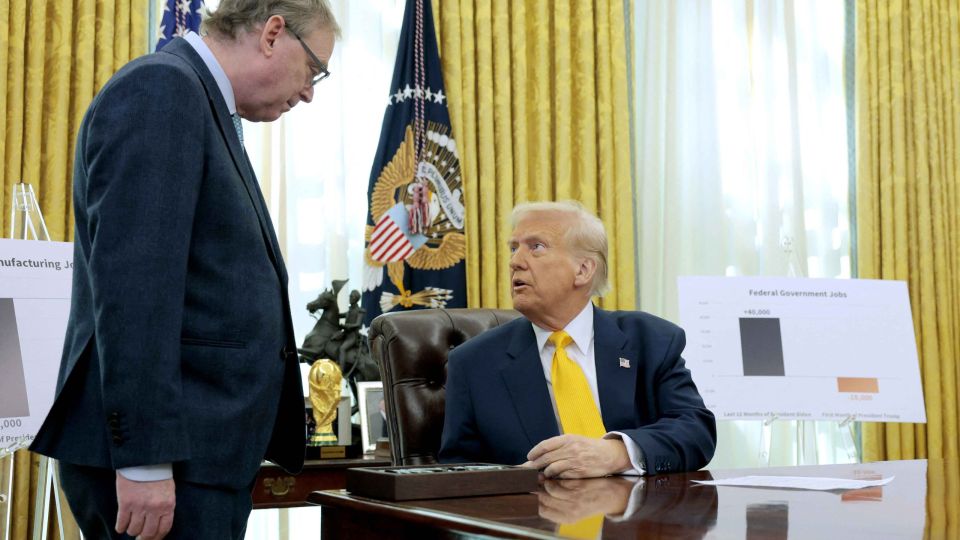March 19, 2025
SEOUL – A key economic adviser to US President Donald Trump pointed to South Korea, along with Europe and China, as among the countries contributing to the US’ “persistent trade deficits” on Monday, as concerns mount over the potential impact of the US leader’s planned “reciprocal tariffs” on trading partners next month.
“We’ve got persistent trade deficits with Europe and with China and South Korea that have been there for year after year after year,” Kevin Hassett, director of the White House National Economic Council, told CNBC in an interview on Monday.
“If you look at why those trade deficits exist, it’s because they have nontariff barriers and high tariffs that make it hard for US firms to compete,” according to him.
Hassett then said that if these countries decided to reduce such barriers, negotiations would end well.
“Our expectation is there are going to be a lot of countries that do respond favorably to President Trump’s negotiation. President Trump is very flexible,” said Hassett. “But my guess is that there are going to be a lot of countries that don’t. They are stuck in their ways. And the countries that don’t are going to have to pay the tariffs. That’s the way it is,” according to him.
The US posted a $66 billion trade deficit with South Korea last year, according to US government figures, placing Korea ninth on its list of countries from which it imports more than it exports.
Although the two countries have had a free trade agreement since 2012 that eliminates tariffs on most goods, Hassett’s remarks are being widely interpreted as a call for Seoul to remove nontariff barriers, which restrict imports or exports of goods or services by means other than duties.
The Trump administration has set the deadline of April 2 for announcing what Trump calls “reciprocal tariffs” on all countries. The White House stated that the US will factor in duties, nontariff barriers, exchange rates and other elements deemed “unfair” when calculating Trump’s new tariffs.
South Korea has been scrambling to mitigate the effects of any possible tariffs from the US, with key officials visiting Washington to seek tariff exemptions and request South Korean businesses not face disadvantages.
Industry Minister Ahn Duk-geun is set to travel to Washington this week, just three weeks after his last visit there Feb. 26-28. During this trip, he plans to meet with senior US officials to discuss issues, including the designation of South Korea as a “sensitive country” by the Department of Energy, as well as Trump’s reciprocal tariffs.
Trade Minister Cheong In-kyo also visited Washington last week, requesting to his US counterpart, Jamie Greer, that South Korea be exempt from such reciprocal tariffs if Trump orders them to go into effect in April.
Amid intensifying market concerns over Trump’s sweeping announcement of a new wave of tariffs, Hassett said, “Absolutely, between now and April 2, there’ll be some uncertainty.”
“But as April 2 comes along, markets will see that the reciprocal trade policy makes a great deal of sense and that for a lot of countries, if they play by the rules, they are not going to be very upset at all at the way the US moves,” according to him.


